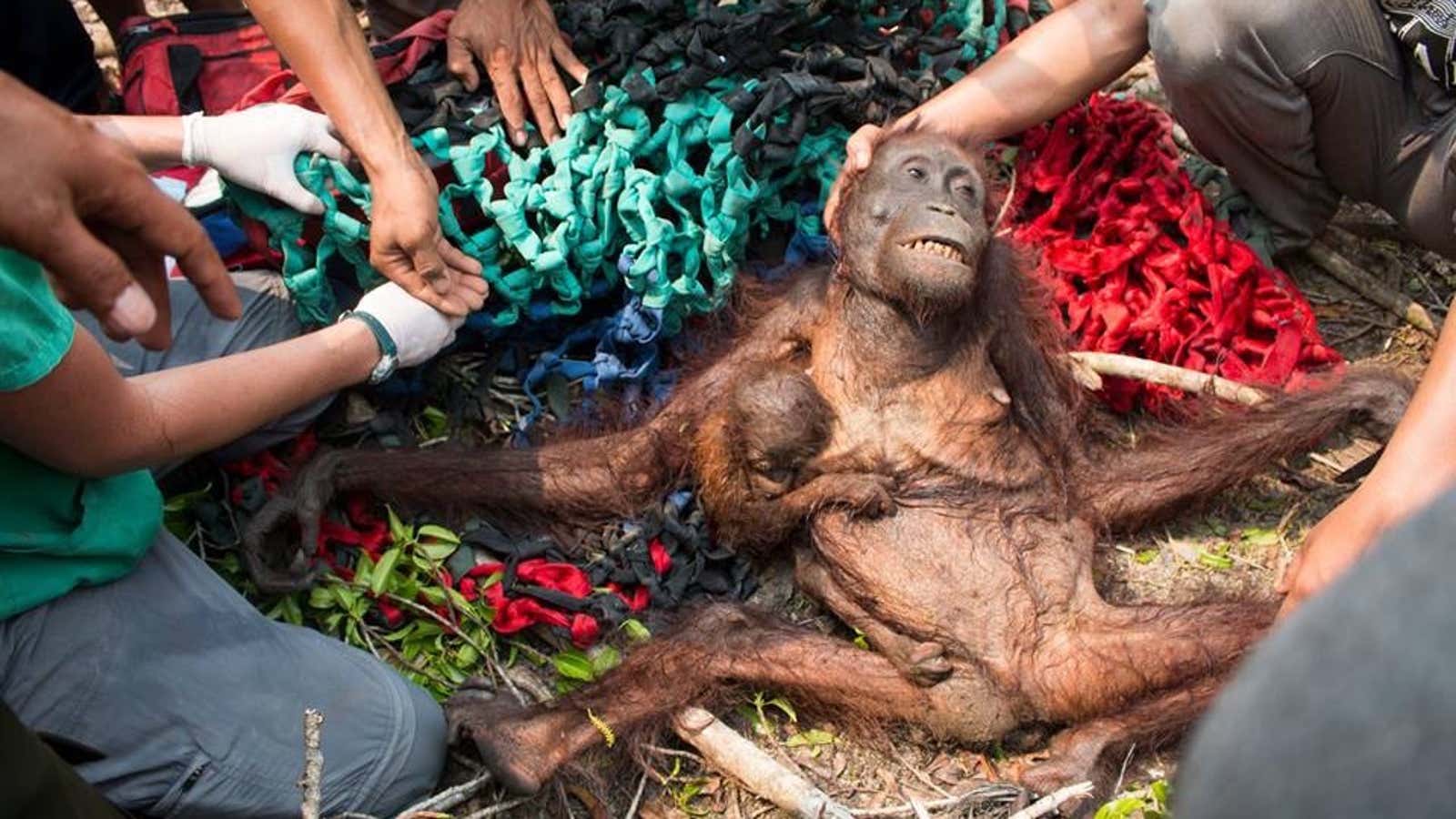Wild orangutans and found in only two places: Sumatra and Borneo. Unfortunately for them, those two islands host more than just their natural habitat. They also host a steadily expanding palm oil industry.
Indonesia is the world’s biggest producer of palm oil, and the bulk of that production takes place on Sumatra and Borneo. The archipelago nation claims all of Sumatra and about three-quarters of Borneo, which it shares with Malaysia and Brunei. Every year during dry periods, fires are set on these islands to clear away forest quickly and cheaply, making the land more suitable for palm oil plantations.
Orangutans suffer on two fronts: from the smoke, which affects their health (as with millions of people around Southeast Asia) and also from the loss of habitat. In some cases the flames drive them—along with other animals, including snakes, monkeys, and wild boars—out of their forest homes and into surrounding villages, where they don’t necessarily receive a warm welcome.
The nonprofit International Animal Rescue, which treats and tries to return suffering animals to the wild, recently published a remarkable photo from Borneo of a mother orangutan and her baby. Posted on Nov. 6, the photo shows the mother appearing exhausted and possibly relieved to be in friendly hands, and the baby clinging to her side. It’s been shared about 17,500 times on Facebook to date.
The pair fled the fires only to face frightened villagers who threw things at them and attempted to capture them. The nonprofit’s team stepped in, anesthetized the mother, and relocated the duo to a protected rainforest area, where they are being monitored by conservationists.
Thanks to an extended dry season and the El Niño weather phenomenon, this year’s fires have been among the worst on record. Several thousand fires have penetrated deep into primary forests and national parks, home to orangutans and other endangered animals. As with human babies, orangutan babies are especially vulnerable to respiratory infections.
“They get flu, cough, and diarrhea, and without intervention they collapse in one or two weeks,” said Monterado Fridman from the Borneo Orangutan Survival Foundation, in an ABC report. This leads to surreal medical scenes, such as half a dozen young orangutans being treated for acute respiratory problems at the Nyaru Menteng orangutan sanctuary on Borneo.
Tellingly, the lands just outside that sanctuary—still smoking from recent fires—were recently planted with new oil palms.
